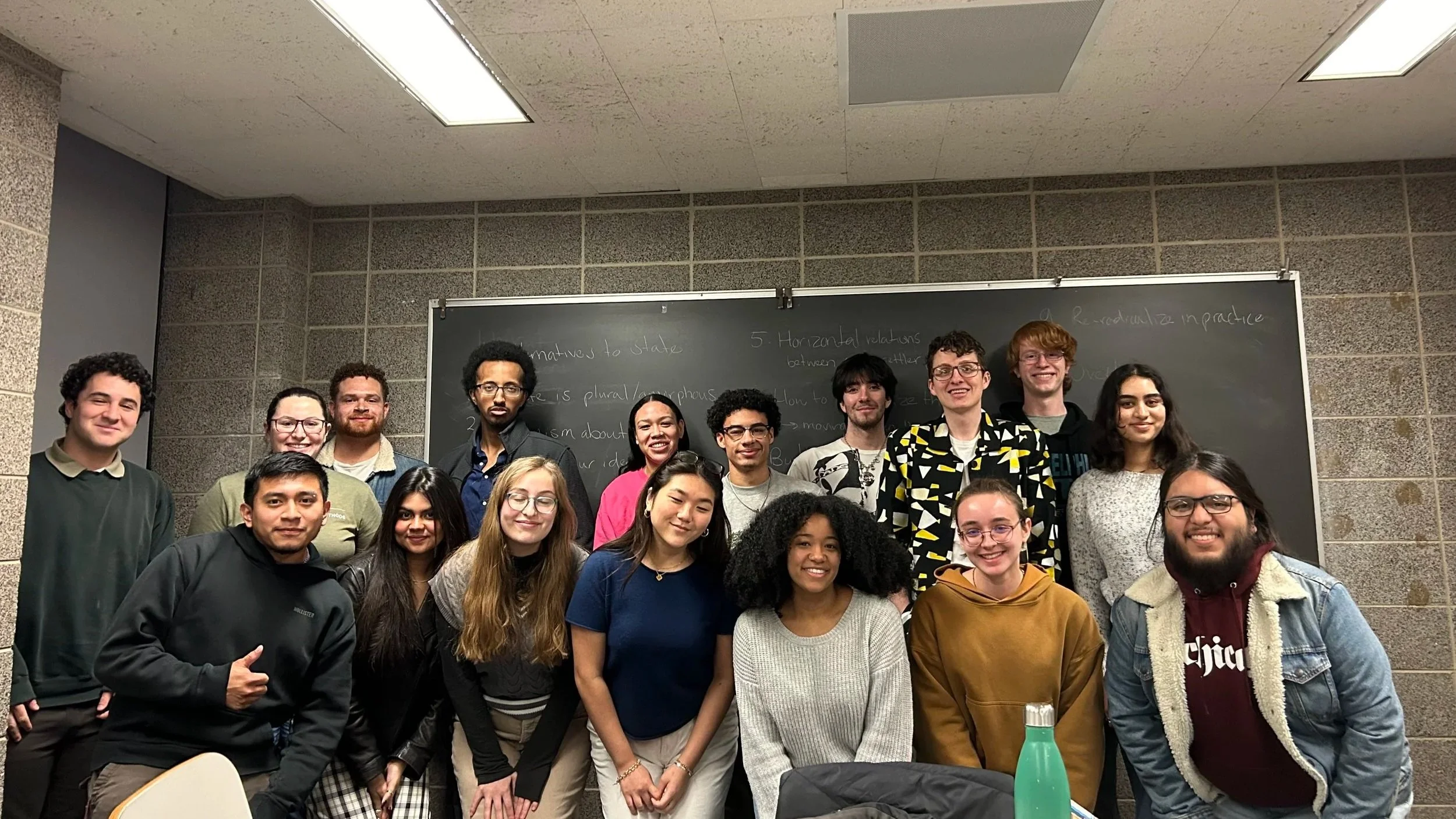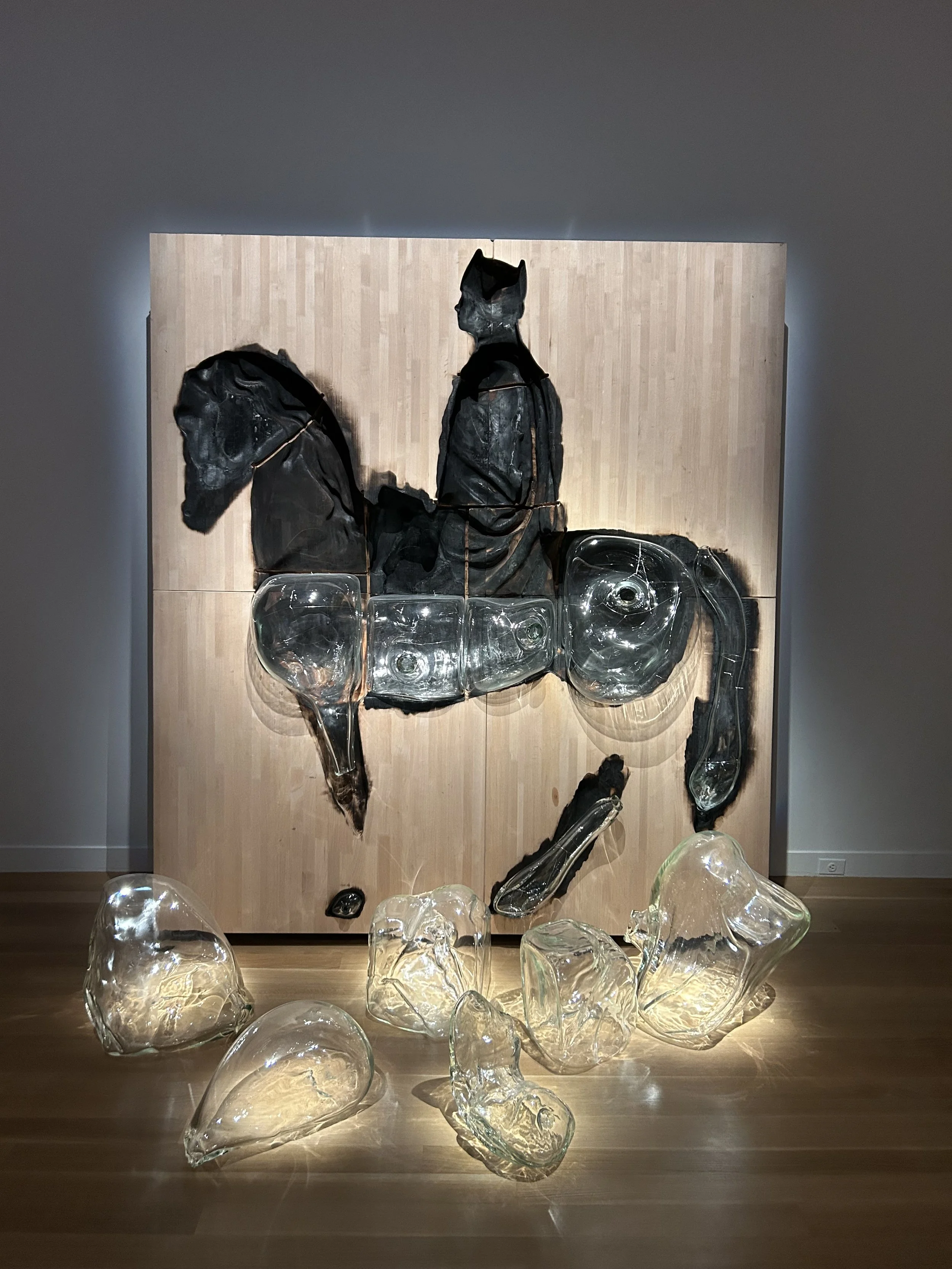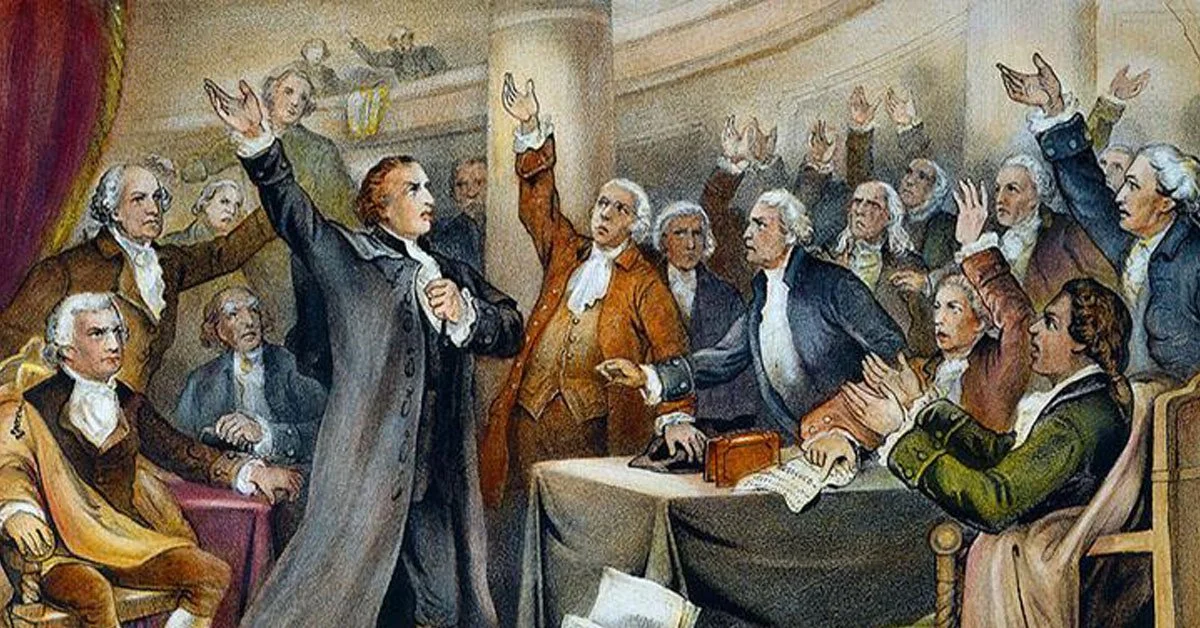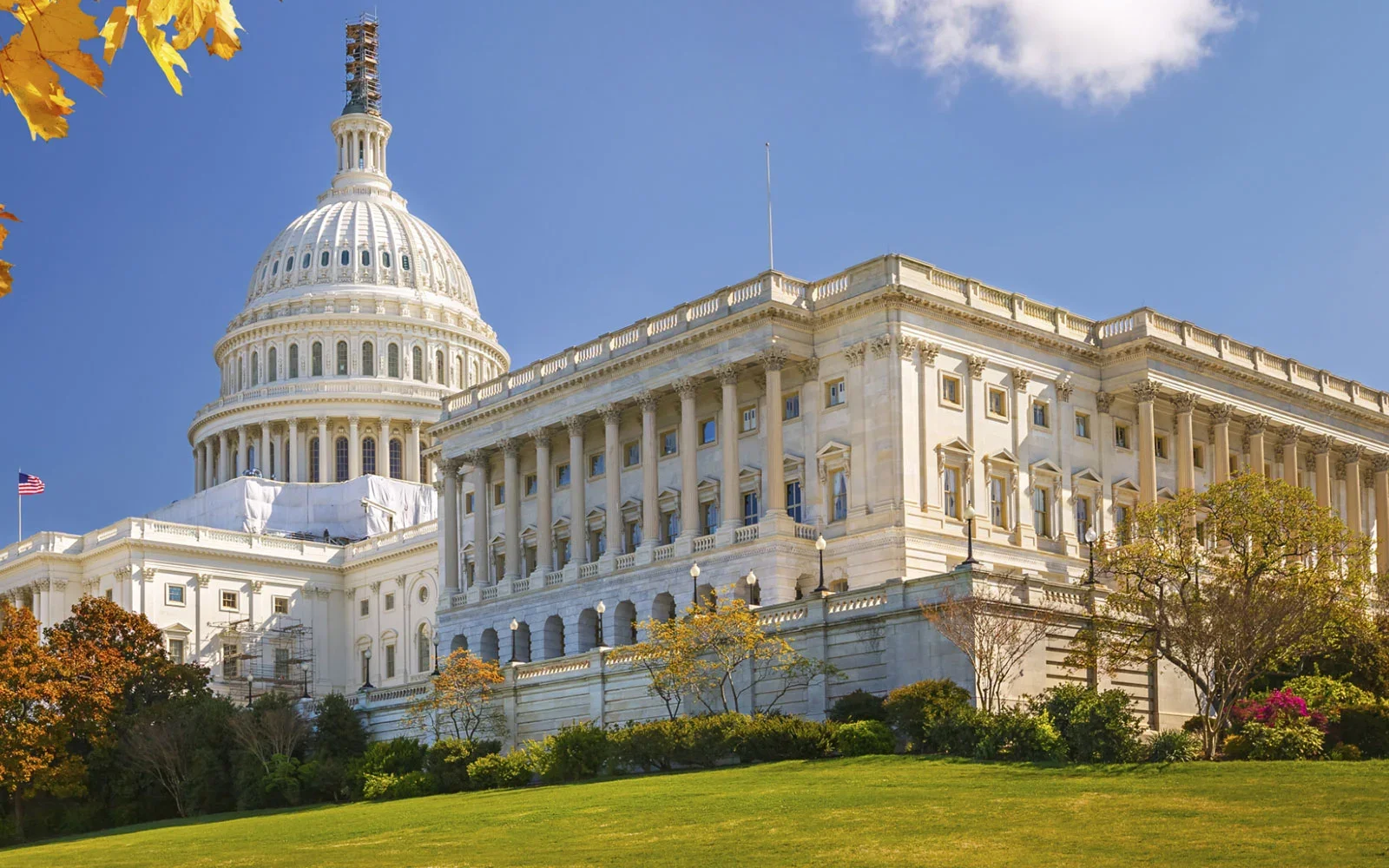
Courses and Evaluations
-

African American Political Thought
This course investigates the major themes, debates, and tensions that animate African American thought from the American war for independence through the present day. We will explore how enslaved Africans and free African Americans confronted the changing racial regimes in American history, resisted forms of racial domination, and reimagined the values at the heart of American democracy. Such a survey of African American thought raises critical questions about the possibility of articulating a unifying African American experience, the costs of forming political attachments to states and national identities as well as the prospects for establishing a multiracial democratic society in the U.S. We will approach these debates with a historical-comparative method, seeking to understand how the terms of political debate have shifted over the course of the past two centuries. Authors that we will cover include Phillis Wheatley, Frederick Douglass, Harriet Jacobs, Martin Delaney, Ida B. Wells, James Baldwin, Audre Lorde, Angela Davis, and Clarence Thomas.
Student Ratings.
Average Effectiveness of Instructor: 4.68/5
Average Effectiveness of Course: 4.34/5
“I cannot recommend this course enough to anyone even mildly interested in political theory or American history. Larry is one of the best instructors I have taken a class with, and there is room for everyone to learn so much in such an overlooked topic (especially in institutions like UChicago).” Student, Fall 2023
-

Intellectual World of the Founders
The political thought of the American Founders haunts contemporary politics, in part, because of the enduring political questions that they asked. This course will deepen your understanding of the American Founding by posing central political questions from that era. For example, we will ask: should the people rule? Should the government regulate speech? Does division or disagreement threaten political order? Our study of the “intellectual world,” however, will not conclude with resurfacing perennial questions. We will act as if we are the founding generation by turning to classical and early modern texts to develop answers to these pressing questions. With the benefit of hindsight and reference to more contemporary debates, we will evaluate the solutions formulated by the Founders and determine whether we would draw the same conclusions today. Most importantly, we will remain reflective about the questions that we ask in contemporary American politics so that we can understand how political inquiry and democratic debate have changed since the Founding Era.
Student Ratings.
Average Structure of Course: 4.81/5
Average Support of Instructor: 4.97/5
Average Cognitive Engagement: 4.57/5
Average Inclusion: 4.66/5
Average Collaboration: 4.75/5
“I think the facilitation of discussion is incredible in Larry's class. He is able to thoughtfully engage a class and get people excited about discussing older pieces of political theory. I thought the I-Don't-Think-So Honey [speeches] were a fun way to get people talking in contemporary ways about such old topics.” Student, Spring 2025
-

Constitutional Debates
This course examines the tumultuous period between 1776-1789 to raise theoretical questions about the American political system. During these years, the nascent American nation transitioned from a confederacy of small republics to a unified federated republic. Such a transformation was born of a contentious debate between various coalitions (most famously Federalists and Anti-Federalists) in early America. In this course, we will treat the American Constitution of 1789 as the result of disagreement, disillusionment, and compromise. We will deepen our study of the American founding with reference to later (more recent) constitutional debates to explore the continued presence of the “founding debates” on American politics and political movements worldwide. By contextualizing the provisions of our founding document in political disagreements, we aim to demystify the Constitution and unleash the genuine potential among the citizenry to conserve, reform, and remake the principles at the heart of our political experiment.
Student Ratings.
Average Structure of Course: 4.85/5
Average Support of Instructor: 4.84/5
Average Cognitive Engagement: 4.74/5
Average Inclusion: 4.78/5
Average Collaboration: 4.85/5
“Dr. Svabek has created an open environment to discuss any problems or provide help for the class. The style of teaching he uses has improved my learning experience greatly, and I love the open discussions we have for the readings every class. It has allowed me to think critically and deeply in a way that I haven't had to do before.” -Student, Fall 2024
-

Race, Freedom, and the State
The Movement for Black Lives and indigenous resurgence movements have brought renewed attention to the complicity of the state (broadly understood) in maintaining structures of racial domination. Since the early modern period (1450-1800 CE), however, democratic, liberal, and republican political theorists have sought to reconcile state power with the idea of freedom--often positing the formation of the state as freedom's precondition. In this course we will engage contemporary dissatisfaction with the state by turning back to the development of the idea of the modern state and its relationship to racialized regimes of domination. We will ask, how did early modern and modern thinkers tie the ideal of freedom to the establishment of the state? In what ways were these theories of the state bound up with the practice of racial domination and hierarchy? Can we reimagine the state so that its institutions promulgate racial justice and equality? Or would movements for freedom and equality find more useful theoretical resources in anti-statist traditions? Authors that we will cover include Thomas Hobbes, Jean-Jacques Rousseau, Georg Hegel, Cedric Robinson, Charles Mills, Angela Davis, Saidiya Hartman, Jodi Byrd, Audra Simpson, and Glenn Sean Coulthard.
Student Ratings.
Average Effectiveness of Instructor: 4.31/5
Average Effectiveness of Course: 4.14/5
“Dr. Larry did a great job of letting the class raise questions we had about the readings and effectively discuss them. He also raised some of his own questions that made connections between readings and pointed us back toward the central ideas of the class and how we should think about race, freedom, and the state in conjunction. His inclusive teaching style allowed for a great amount of participation during class, and I noticed that my peers and I were motivated to engage and build off one another's ideas.” Student, Spring 2024
-

Abolition and Its Afterlives
In recent years, scholars and activists have (re)turned to the abolitionist movement of the 19th century in order to gain critical traction on modern forms of domination. The return of abolitionism reveals an aspiration to learn from the failures of the past in order to generate new strategies to overcome the structures of domination that pervade our social and political lives. This quarter we will read a series of texts written/produced before and after the formal end of slavery in the United States (1863-5) with particular attention paid to the revisions, retrospections, and reformulations made to conceptions of freedom. We will ask, how did abolitionists understand the meaning of freedom before Emancipation? What political transformations did they believe were necessary to make freedom real? How did formal emancipation fulfill or disavow the abolitionist imaginary? In the second half of the course, we will track the rise of progressive interpretations of abolitionist history in the 20th century. In doing so, we will raise questions about the re-emergence of abolitionist promises. How does the turning back to abolition occlude key political disagreements among early and mid-nineteenth century activists? What is the role of the state in abolitionist projects? Have abolitionist definitions of freedom changed or remained the same over time?
Student Ratings.
Average Effectiveness of Instructor: 4.78/5
Average Effectiveness of Course: 4.65/5
“Larry's clear passion for the topic was so evident and made the texts and discussions we read through and talked about so much more engaging and interesting. A topic like this is really enhanced by a professor who clearly understands it in a historical and modern political sense, and his facilitation of discussions and thought–provoking questions made the class really interesting.” Student, Fall 2022
-

Introduction to American Government
This course is an introduction to American government. In it, we will cover a range of issues central to the structure and substance of politics in the United States: the founding and the Constitution, federalism, civil rights, the basic institutions of government, public opinion and participation, interest groups, and public policy. The course is also intended to provide an introduction to various aspects of political science, offering a broad survey of themes, questions, and topics that can be studied further in the context of a major or minor in the Department of Political Science.
The central objective of this course is that, by the end, students will be equipped with sufficient knowledge about American politics and government to be active and effective participants. To this end, the structure and content of the course is oriented towards the following goals: 1. Students will be able to describe our systems of government and identify where change is needed and how change is possible. 2. Students will have an understanding of the struggle for civil rights in the United States and the role race has played, and continues to play, in American politics. 3. Students will be able to diagnose what branch of the national government—Congress, the president, and/or the courts—should handle particular political challenges. 4. Students will be able to explain why we have the laws, electoral results, and policy outcomes that we do in the United States.
“The lectures provided were very clear and informative. These lectures, in comparison to other professors were straight to the point, easy to comprehend, and kept my attention.” -Student, Fall 2024
-

Theory and Method in Critical Race & Ethnic Studies
This course is for students in interdisciplinary programs that are interested in researching topics that focus on race and ethnicity. It is designed to function as a research workshop in which students identify a research topic, develop a research question, and explore a range of methods that may or may not be appropriate for the research project.
This two semester course culminates in the writing of a BA thesis or creative project. Each student will individually design and execute a unique research project. Regardless of the specific research topic or methodology chosen, the BA paper represents an original piece of scholarship greater in scope than any previous course papers. Alongside our investigation into the appropriate methods of inquiry, we will learn about the process of doing research including time management, constructive criticism, and navigating scholarly resources at the University.
-

Modern Political Thought: Democracy and Its Critics
This semester we will read a global cast of thinkers from the 19th and early 20th centuries. By reading these thinkers, we will become aware of the underlying judgments, commitments, and desires that draw our modern selves toward the idea of democracy. In doing so, I hope we can address T.S. Eliot’s frustration that democracy “means too many things.” What features characterize democracy? Does it name a set of institutions, practices, or habits? Does it require certain psychologies, identities, or vocabularies? What alternatives to democratic organization exist? Following the first two quarters of the sequence, we will discuss the themes of justice and freedom with a sustained emphasis on how these themes relate to equality. How does democracy foster claims for equality? What kind of equality should democratic societies seek to defend? How does that form of equality relate to ideas of freedom? Should we understand failures to provide substantive equality a result of avoidable democratic discontents or an inherent feature of democratic processes? These questions merely provide a point of departure for what will surely be an exciting quarter.
Student Ratings.
Average Effectiveness of Instructor: 4.7/5
Average Effectiveness of Course: 4.3/5
“Larry really turned around my whole perspective about this course sequence. I [thought] it was a huge mistake to take Classics and I suffered of boredom and ennui the first two quarters… Then Larry came along for the third quarter and he really changed things: his passion for the subject is not only palpable, it’s inspiring and motivating.” Student, Spring 2019